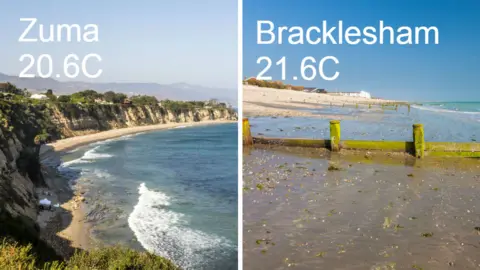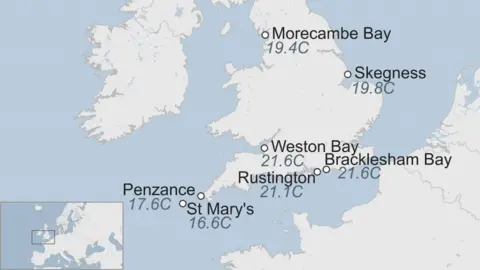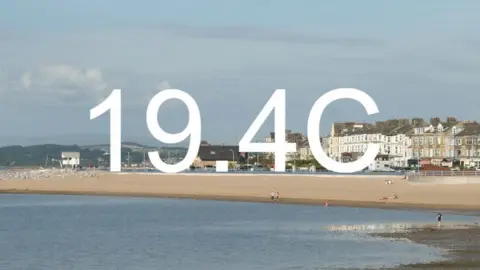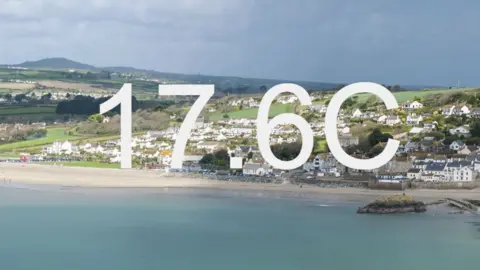UK seawater 'warmer than California'
 Getty Images
Getty ImagesThe heatwave is raising sea temperatures in parts of England to higher than some of those in California, according to statistics.
Bracklesham Bay in West Sussex, where temperatures have hit 21.6C, is beating temperatures in Zuma Beach, at 20.6C.
UK temperatures are overall way higher than the average for the time of year.
Figures from the Channel Coast Observatory (CCO) also show that Skegness and Morecambe have been a few degrees warmer than Cornwall.

Penzance at 17.6C is more than 2C above the average of 15.2C for this month over the last 11 years.
The South West, which is famed for its beaches, may be the first choice for many to dip their toes in the water.
But the warmest places include Bracklesham Bay, and Weston Bay in the Bristol Channel, which both hit 21.6C on Monday.
 Getty Images
Getty Images Getty Images
Getty ImagesCharlotte Jimenez, of the Morecambe Visitor Information Centre, said: "It's great to see Morecambe is warmer than Penzance, it's a real feather in our cap and hopefully it will bring even more people here."
James Gilbert, head of tourism for Skegness, said: "Skegness is known for its warm welcome, so I'm really pleased to see our seawater temperatures reflect that too."
 Getty Images
Getty ImagesDr Tim Smyth of the Plymouth Marine Laboratory, which analyses seawater data, said temperatures were dictated by factors such as the type of sea bed and tidal flows, as well as the weather.
"Strong tidal flows pull cold water from the depths, and rockier coastlines reflect heat from the sun, so a sandy seabed can be warmer than a rocky one," he said.

You may also like:

He said winds also affected water temperature by breaking up the surface, so beaches protected from prevailing winds often had warmer water.
"It's been relatively windless which has meant the heat has not been dissipated, but the east of places like Start Point in Devon are almost always warmer than the west.
"Long days and warm nights have also led to less heat being radiated back into the atmosphere, which has led to an overall rise in temperatures."
 Blue Sharks Cornwall
Blue Sharks CornwallThe warm weather is also bringing in new swimming companions, according to experts.
The University of Southampton's National Oceanography Centre says 10 species of shark currently found in warmer parts of the world could inhabit our seas by 2050 because of climate change.
And divers in Cornwall say they are seeing more blue sharks off the Cornwall coast amid the above-average temperatures.
It is a major contrast to the UK's freezing winter when the Beast from the East sent temperatures plummeting, along with stocks of crab.
 Getty Images
Getty Images